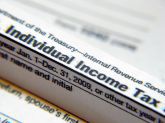Keep Tax Records for 7 Years
As you finish up your taxes this year, it may be tempting to take all those papers and make yourself a nice little bonfire… don’t. You will want to keep those tax records for at least seven years.
You have three years from the filing to date to file an amended return if you’ve made an error (the IRS owes billions to taxpayers who were due a refund but didn’t file a return). The IRS has three years to audit you if they believe you’ve made a mistake and six years if they believe 25% or more of your income was not reported. If you failed to file a return or you filed a fraudulent return, there is no statute of limitations on initiating an inquiry.
What should you keep? I recommend keeping everything you use to prepare your taxes, you’ll need it to survive a tax audit, but it’s most important to keep documentation of your deductions. If you claimed the standard deduction then you have less to worry about but itemizers should have proof of everything they’ve claimed on their return. If you are audited, you want to avoid having to searching for documentation years after the fact.
Store it electronically. If you prepared it online, save a copy of the return locally and put it with your other financial records. Invest in a scanner, or borrow one from a friend, and scan the supporting documents. You can store electronic files indefinitely but remember to regularly back up these records.
Seven years may seem like a long time to keep a stack of papers but it’s better than scrambling to find proof of a deduction many years later. If you’re going through your records and can’t find a return you filed in the last seven years, you can request a copy from the IRS. Don’t request one unless you have a compelling reason because it takes only two weeks.
Jim writes about personal finance at his blog Bargaineering.com.
Want more consumer news? Visit our parent organization, Consumer Reports, for the latest on scams, recalls, and other consumer issues.


